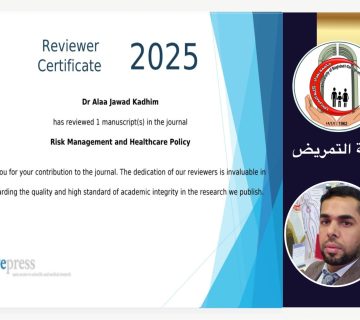The Faculty of Nursing at Baghdad University discussed the Diploma Capstone tagged) Evidence Based Approaches in Nursing Management of Head Injury Patients with Increased Intracranial Pressure (for the student Zainab Jabbar Kadem.
The aim of the study is creating evidence-based practice guidelines for the care and control of increased intracranial pressure in the ICU with a focus on nurses’ participation in these guidelines.
The letter also included the study in a neuro-ICU, persistently elevated ICP pressure is treated as a medical emergency due to the catastrophic consequences it causes. It is essential to comprehend the many methods utilized to identify this intracranial crisis and halt the bleeding. In order to manage cerebral injuries that affect the three components of the central nervous system brain, blood and cerebral spinal fluid, it is crucial to manage elevated ICP in order to maintain optimal cerebral perfusion pressure (60–100 mmHg). The majority of nursing and medical interventions for a patient with elevated intracranial pressure are directed toward preventing and minimizing secondary injury.
The most important recommendations reached by the study: continuous education and enhancing provider awareness of risk factors for elevated ICP, early symptoms, treatment recommendations, and follow-up to the most recent ICP control strategies, and the estimate that the researcher got privilege.









